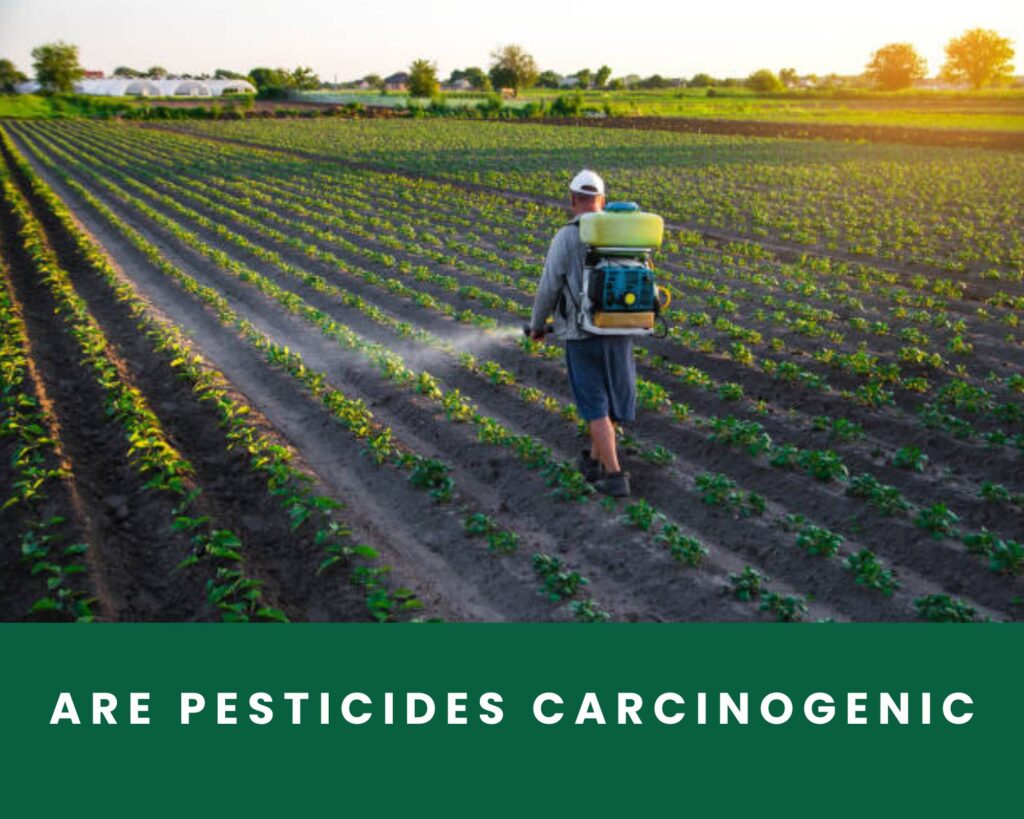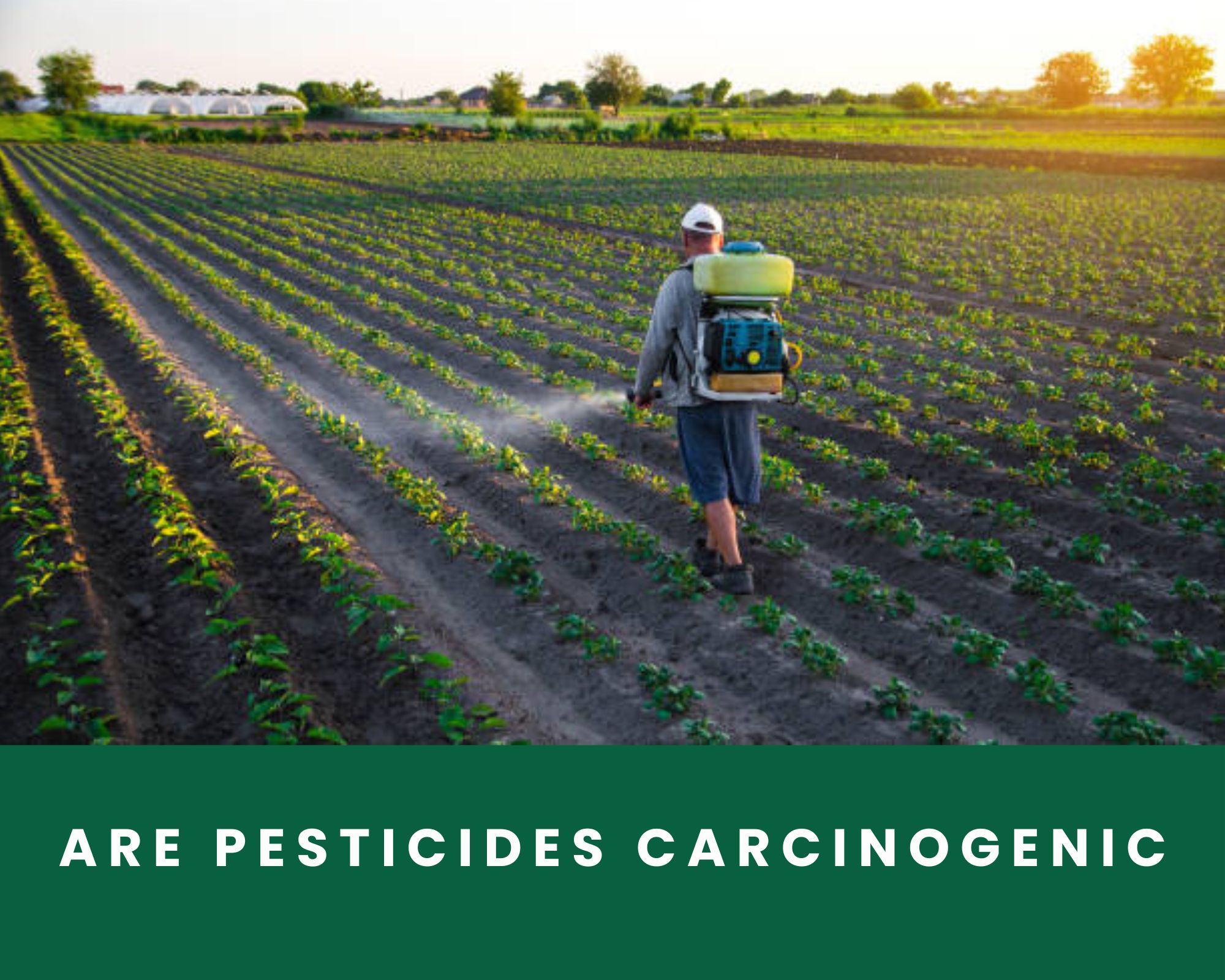
In most animal studies, many pesticides are carcinogenic, which means that they can cause cancer, while others are tumor promoters. This depends entirely on the type of pesticide and the chemicals that are in them.
For instance, the chemicals in the pesticides that cause cancer are creosote and sulfate which are the most common ones. While the chemicals in the pesticides that are tumor promoters are chlordane and lindane.
If a pesticide is carcinogenic or not is a worry that so many people have thought about because we are constantly exposed to pesticides.
Some chemicals used in making pesticides have been linked to cancer through research, however, there is no exclusive link that states that the pesticides cause cancer.
There are a lot of different chemicals that are used in making pesticides, but there are a lot of other things that might cause one to have cancer.
However, there is also insufficient evidence to conclusively show there is no link between pesticide exposure, either through direct chemical or residual contact, and cancer.
Ways That You May Come In Contact With Pesticides
Since there are studies that show that pesticides cause cancer, and there are others that don’t, we cannot the certain about what happens when we come in contact with pesticides. It would be best to know what happens so it can easily be avoided. Here are some ways we as individuals may have come in contact with pesticides:
Work Contact
The fastest and easiest way for individuals to come in contact with pesticides is if they work with pesticides or handle them directly. Several international studies have found that there are higher data rates from specific cancers among people that are occupationally exposed to pesticides.
There are pesticide applicators, factory workers, farmers, gardeners and so much more. However, one thing that was confusing was that there was no increased death rate of cancer among exterminators. Exterminators use pesticides regularly and yet, there has been frequent death caused by cancers in that occupation. However, multiple research studies have shown higher death rates among farmers and pesticide applicators. Some types of cancers that they get are myeloma, brain cancer, prostate cancer, lip cancer, skin cancer, and leukemia.
Also, there are no clear signs to show if pesticides cause these deaths as workers in this field are exposed to other carcinogens. They are exposed to solvents, dust, different chemicals, and so on. So, it is difficult to tell if contact with pesticides in the workplace would cause cancer.
Contact through Food
Contact with pesticides can be gotten from the food we eat as pesticides are sprayed on food products and it is very likely that this may end up in the human body. As much as this can try to be avoided, it would be advisable to always wash your food well to try to avoid ingesting the chemicals from pesticides.
Most of the time, the level of pesticides in meals is very low and can hardly cause any physical damage to the body. It is estimated that more than 99% of the pesticides we eat are naturally occurring, yet around 60% of both synthetic and natural pesticides have been shown to cause cancer in rodent tests. Also, there is no sure evidence that eating food that has a little bit of pesticide residue can cause cancer.
Environmental contact
We can be exposed to pesticides in the environment like through the water we drink and fumigations that happens in our household. Most times, children experience greater exposure to this than adults.
How to Avoid Contact With Pesticides
There are so many ways that you can avoid coming in contact with pesticides while l also staying safe.
When applying
If you cannot fully cut off contact with pesticides because you may have farmland, or work with pest control, then you need to be very careful when you’re applying pesticides.
Do not smoke or eat when you’re applying pesticides as you may mistakenly ingest some of it and it can be very dangerous to your body. Make sure you also follow the guidelines at the back of the package and do not attempt to put more than what is needed.
Putting more than the normal amount of pesticide needed would not do the job faster or quicker so bear this in mind when applying. When out in the environment, you should try to keep yourself and your surroundings safe by diluting your pesticides carefully.
Ensure you measure whatever you need outdoors and not in your kitchen so residue won’t get on your appliances.
After applying
When you’ve taken full precautionary methods when applying the pesticides, you’ll need to also take measures after you’re done applying. Remove the pesticide residue and use a bucket to scrub and properly clean all your equipment when you’re done.
Wash your gloves with hot soapy water thoroughly and make sure you wash the gloves while they are still on to avoid contact with your hands. Wash every single part of your body that may have been in contact with the pesticide when you were spraying, and rinse your boots also to avoid carrying leftover pesticide into your home.
When you’re done rinsing off the pesticide, wash all the equipment used in clean, soapy, lukewarm water. For extra prevention, it is always advised to take a hot bath or shower after.
For Storage
When storing pesticides ensure that they have a storage room or cabinet that is far from reach from children and pets alike. Do not put pesticides in food containers as this can be confusing, instead store them in their original containers with the labels still on to prevent any form of accident. If a spill occurs when storing, clean it up immediately and properly.
Conclusion
It is not certain that pesticides cause cancer, but if you would like to feel better, you can try as much as possible to avoid coming in contact with pesticides. No concrete study has been released that could tell if pesticides are carcinogenic or not, so this is unclear and uncertain.

